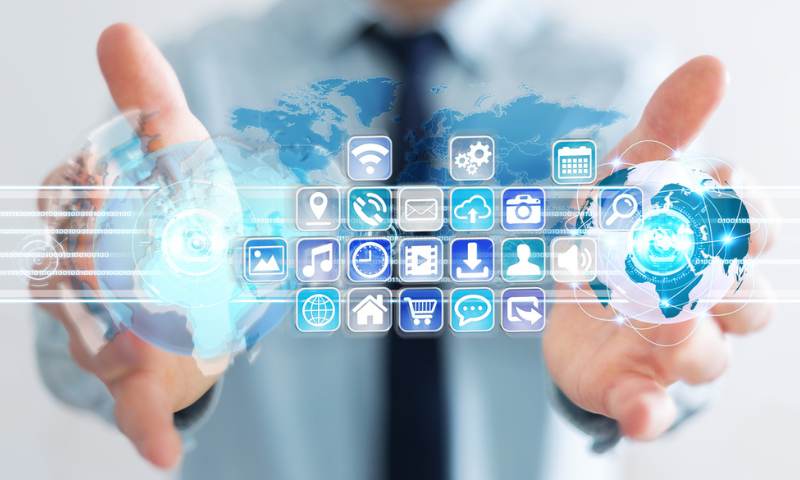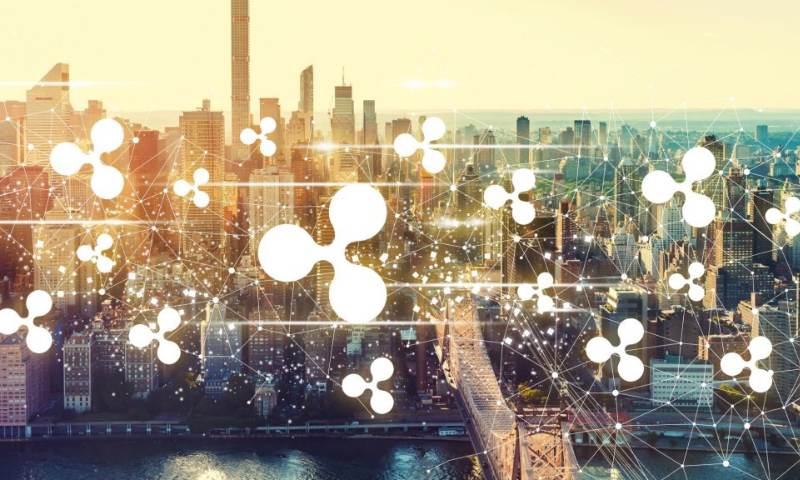Decentralized Systems: Unleashing the Surprising Perks for Modern Users
Ever wonder about the benefits of decentralized systems? They’re not just buzzwords; they make our online lives safer and more direct. I’m here to pull back the curtain on how these systems crank up security and shine a light on every transaction you make. Plus, you’ll see how they pocket your cash by chopping out unnecessary middlemen. Ready to get the power back in your hands? Dive into a world where smart tech handles trust and you call the shots with nifty apps. And don’t miss out on how these savvy systems are breaking down barriers, giving everyone a fair shot at the digital pie. Buckle up – we’re about to explore how decentralization is not just techy talk but a game-changer for users like you.
Embracing Enhanced Security and Transparency with Decentralization
The Mechanisms Behind Increased Security in Decentralized Systems
Have you ever lost a game because it was uneven or unfair? That’s like using centralized systems — one power holds all the cards. Now, imagine a game where rules are clear, and everyone checks each other. That’s decentralization; a safer, fair play where no one cheats.
In a decentralized system, info spreads across many places. Like having backups of family photos — if one is lost, you have many left. So, if bad guys attack, your info stays safe. Many watchers keep the data secure. It’s like having a superhero team guard your secrets. No single point can fail and cause trouble.
How Distributed Ledgers Elevate Transparency in Transactions
Think of checkers; it’s easy to see every move. That’s what distributed ledgers do for info sharing. Everyone can look at the moves — they can’t be hidden. When we trade or share, it’s clear who did what. It stops sneaky moves because everyone is watching.
Imagine a library where all books are open for you to read, and no pages can be ripped out — that’s distributed ledgers. They track Every step in a deal or swap. Nothing can be changed secretely. It’s clear as day, a truth everyone agrees on.
Decentralized systems don’t just stop unfair games. They build trust and save money too. They tear down old walls, letting us share and protect our things better. We become the captains, steering our digital ships safely.
The Cost-Effectiveness and Efficiency of Peer-to-Peer Networks
Comparing Centralized and Decentralized Systems: Where the Savings Lie
Think of how you send money online. Often, a bank is in the middle, taking a cut. But with blockchain, we cut out those costly middlemen. This is one reason why decentralized systems save us cash.
Decentralized systems, like blockchain, link computers directly with each other. Each has a copy of the same digital ledger. So, changes show on every computer at once. No one person or group controls the data. That’s a big shift from centralized systems. Here, one main server holds all the data. And control. This makes blockchain safer and harder to mess with than centralized systems.
So, how do these systems save us cash? Simple. They are transparent, open for anyone to check. With less need to trust others, we save on checks and insurance. Less trust-related costs mean more savings.
Plus, in centralized systems, we worry about data breaches. These can be costly for companies and customers. But blockchain’s tight security from decentralization makes breaches rare. Less risk, less cost.
Streamlining Operations with Blockchain’s Distributed Databases
When we talk about blockchain, think of a shared document. But way better. Anyone with the right access can see live updates. No need to pass around files or keep many copies.
This smooth way blockchain works saves us time and money. How? By making data exchange near-instant. No waiting on a central authority to check each step. So, we move faster. This speed boost also means we spend less on keeping things going.
Now, fault tolerance in tech means backups when parts fail. With blockchain, our data has many backups. So, one failure can’t ruin everything. This keeps things running smooth. Fewer hiccups, less wasted cash.
These are just a few ways peer-to-peer networks’ efficiency and cost-effectiveness shine. Each computer works with others to share and protect data. No central weak spot. No needless spending. Smart contracts and DApps build on this, making deals and services even better. They give users more power and trust in the system.
Blockchain is changing how we share, save, and trust in the digital world. It’s not just talk. It’s a smarter, safer way to do things that save us all cash. And that’s worth paying attention to.
User Empowerment and Trustless Environments: A New Era of Digital Interaction
The Role of Smart Contracts in Automating Trust
Imagine you make a deal with a friend. You agree, shake hands, and hope nobody backs out. With smart contracts on a blockchain, agreements turn automatic. Smart contracts do the handshaking and make sure nobody backs out without the need for a middleman. These are self-run contracts that live on the blockchain.
When you use a smart contract, you know it will do exactly what you both agreed. It’s like having a robot referee that never sleeps. Because it’s on the blockchain, nobody can mess with it after it’s made. This cuts the chance of someone playing tricks in a deal.
These smart contracts can do a lot. They help you buy homes, get insurance, or pay someone without the need for a bank. They make sure everyone plays fair. This boosts trust in a trustless system. People feel safe knowing that what’s agreed will happen, no matter what.
Maximizing User Control with Decentralized Applications (DApps)
A DApp is like a regular app on your phone but with a big twist. It runs on a blockchain. That means it’s not owned by one company. You and many others help run it and keep it safe. Everyone’s in charge, not just one big boss.
With DApps, you control your data. No one else can say they own your stuff. They can’t shut it down or tell you what to do. It’s freedom right in your hands. You get to play games, share posts, or even send money without anyone peeking over your shoulder.
And here’s the cool part: DApps can save you cash. There are fewer people in the middle taking a cut. So, you get to do more with your money. It’s all thanks to the magic of blockchain making things simple and direct.
In a world where we do so much online, DApps give power back to people like you and me. They show us what’s possible when we share control. We get to make the internet the way we like it – open, fair, and our own.
Decentralized systems reshape how we think about trust and control. They help us to be sure that our digital lives are truly ours.
Fostering Innovation and Accessibility: The Far-reaching Impact of Decentralized Systems
Democratizing Data and Financial Access for the Unbanked
Ever heard of “unbanked”? It means folks who don’t use banks. Now why does this matter? Because a lot of people around the world can’t get bank accounts. But, with blockchain tech, we change the game.
What’s the big deal about blockchain for the unbanked?
It lets them take part in money matters without needing a typical bank account. With mobile apps, they can send, get, and save money safely.
Blockchain takes the power from a single point and spreads it out. This means that no one boss controls all the money. It’s a big win for trust and safety. Even in places without banks, people can now jump into the economy. They do this using things called cryptocurrencies.
What’s so good about decentralized money systems?
They cut out middlemen. So sending money costs less and happens fast.
Next, folks can keep their money in digital wallets. So, they aren’t hiding cash under mattresses. Cool, right? It’s about giving everyone a fair chance to handle their cash, no matter where they live.
Advancing Digital Identity and Privacy Through Decentralization Techniques
Privacy is a hot topic. We all want to keep our stuff safe, and we hear about data leaks too often. Enter blockchain: our digital safety guard.
How does blockchain protect your identity?
Just like with money, blockchain makes sure your personal details aren’t at risk. It splits your info across a network. This makes stealing it or faking it super hard.
No one wants a stranger snooping through their private life. Blockchain’s smart tech gives users control over who sees their info. This stops unwanted peeks into our digital world.
But how can we really trust a system? Well, blockchain is picky about who it lets in. Each member has to agree before any changes are made. That’s a team effort keeping your digital identity safe.
So we’ve got folks without bank accounts joining the economy and tighter control over our private details. Plus, we’re fighting off thieves and fraud. That’s all thanks to decentralization. Blockchain’s not just tech talk; it’s changing lives.
In this post, we dove into how decentralization brings better security and clear, honest dealings. We learned that with no central point to attack, systems are safer. As for money matters, blockchain shows every detail for true openness.
We also saw decentralization lowers costs and ups efficiency. Peer-to-peer networks cut out middlemen, saving us cash and speeding things up. Blockchains streamline everything, from the get-go to the finish line.
Moreover, we get more power in our digital world. Smart contracts make trust automatic. And with DApps, we control our online life and data.
Lastly, we explored how this tech opens doors for many, even those without a bank. It gives everyone a shot at storing and managing their info privately.
In a nutshell, decentralization is not just tech talk—it’s real change for better, safer, and fairer systems. And that’s huge for all of us. We’re standing at the edge of a new, brighter digital age!
Q&A :
What are the main advantages of adopting a decentralized system?
Decentralized systems offer a plethora of benefits, such as increased reliability due to the lack of a single point of failure. Without a central authority, these systems promote a more democratic process, granting participants equal power and fostering trust through transparency. These systems often enhance security as well, as the distributed nature can make hacking attempts considerably more challenging.
How does decentralization impact data security and privacy?
Decentralization can significantly enhance data security and privacy by distributing data across multiple nodes. This distribution means that no single entity has complete control over all the data, reducing the risk of mass data breaches. Moreover, with blockchain-based decentralized systems, data is often encrypted and can be anonymized, providing an extra layer of privacy for users.
Can decentralized systems improve operational efficiency?
Yes, decentralized systems can improve operational efficiency by enabling direct peer-to-peer interactions, cutting out middlemen, and streamlining processes. This can result in faster transactions and reduced transaction costs. Additionally, decentralized systems can operate around the clock without the need for centralized coordination, which can boost productivity and response times.
Why are decentralized systems said to be more resilient?
Decentralized systems are considered more resilient because they lack a central point of failure. If one node or even several nodes in a decentralized network go down, the system can continue to operate without significant disruption. This attribute makes decentralized systems particularly robust against attacks, natural disasters, or other disruptions that could incapacitate a centralized system.
In what ways do decentralized systems promote innovation?
By their very nature, decentralized systems encourage innovation by reducing barriers to entry for developers and entrepreneurs. Without the need for permission from a central authority, individuals can build and deploy new applications, services, and business models directly on decentralized platforms. This open environment fosters a competitive atmosphere where the best ideas can thrive, often leading to more rapid and diverse technological advancements.


